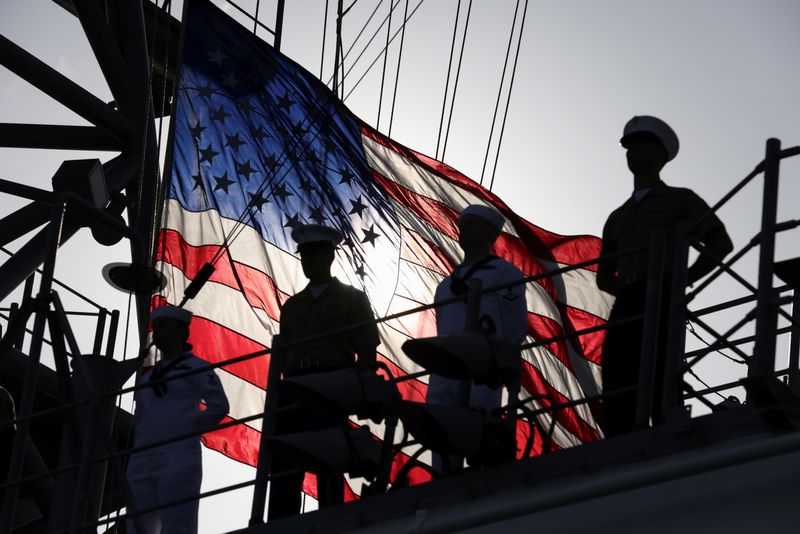By Phil Stewart and Steve Holland
WASHINGTON (Reuters) -President Joe Biden on Friday nominated Admiral Lisa Franchetti to lead the Navy, an historic step that would break a gender barrier in the U.S. military by making her the first woman to command the service and to become a member of the Joint Chiefs of Staff.
The decision by Biden is a surprise. Pentagon officials had widely expected the nomination to go to Admiral Samuel Paparo, who leads the Navy in the Pacific and who has experience grappling with the growing challenge from China.
Still, Franchetti, who is currently the vice chief of operations for the Navy, was among the candidates believed to be in the running for the position, is widely respected and counts broad experience, including as commander of U.S. Naval Forces Korea, officials said.
In a statement, Biden noted Franchetti's 38 years of experience.
"Throughout her career, Admiral Franchetti has demonstrated extensive expertise in both the operational and policy arenas," Biden said in a statement, noting that she was the second woman ever to achieve the rank of four-star admiral in the U.S. Navy.
Last year, Biden picked Admiral Linda Fagan to lead the U.S. Coast Guard, making her its first female commanding officer. But the coast guard is not formally part of the Department of Defense, and instead falls under the Department of Homeland Security.
Franchetti would become the first woman to lead a military service within the Defense Department and to join the Joint Chiefs of Staff, a group of eight top uniformed service members who advise the president on military issues.
Biden also elevated Paparo, nominating him to become the commander of all U.S. military forces in the Pacific. He picked Vice Admiral Stephen "Web" Koehler to succeed Paparo as commander of U.S. Pacific Fleet.
Biden's announcement comes during a block on all U.S. military nominations in Congress by Senator Tommy Tuberville, who is protesting a Defense Department policy that reimburses costs for service members who travel to get an abortion.
Senior military nominations must be approved by the Senate. Although the review is usually routine, a single senator can pause the process by putting a hold on nominations that force them to be considered one at a time, taking many hours each.
Tuberville's block could have a far-reaching impact across the armed forces, affecting troops and their families, and ultimately costing the U.S. military talent, a point underscored this month by Biden's pick to become the top U.S. general, Air Force General Charles "C.Q." Brown.
The military is already having to shuffle staff to fill a top leadership post after the commandant of the Marine Corps, one of the members of the Joint Chiefs of Staff, stepped down on July 10 when his four-year term ended.
His Number 2 has taken over but the hold on promotions has left the Marine Corps without a confirmed leader in the job for the first time in more than a century, the Pentagon said.
Biden said the delay undermined national security.

"What Senator Tuberville is doing is not only wrong — it is dangerous," Biden said in the statement.
"He is risking our ability to ensure that the United States Armed Forces remain the greatest fighting force in the history of the world. And his Republican colleagues in the Senate know it."